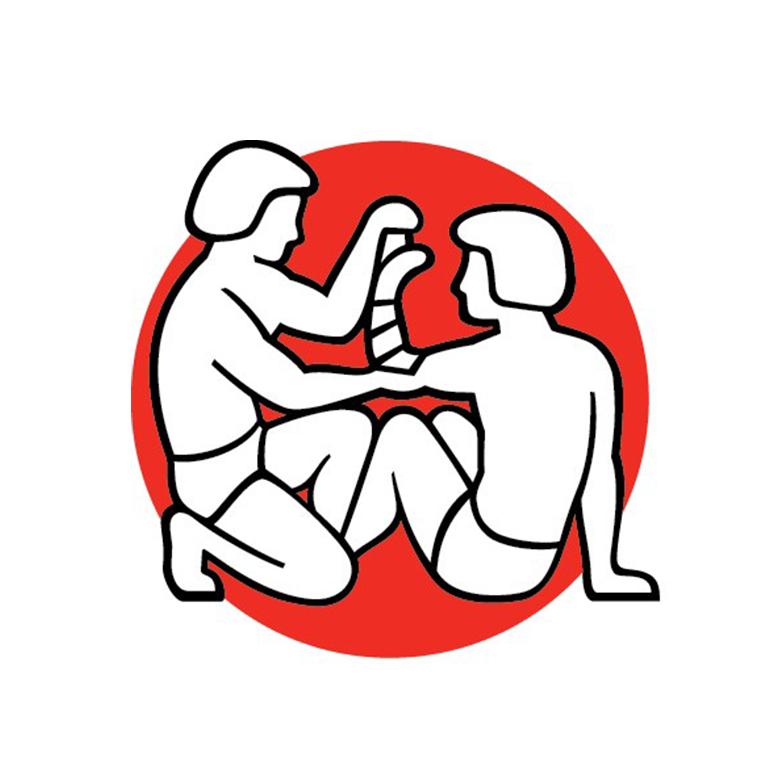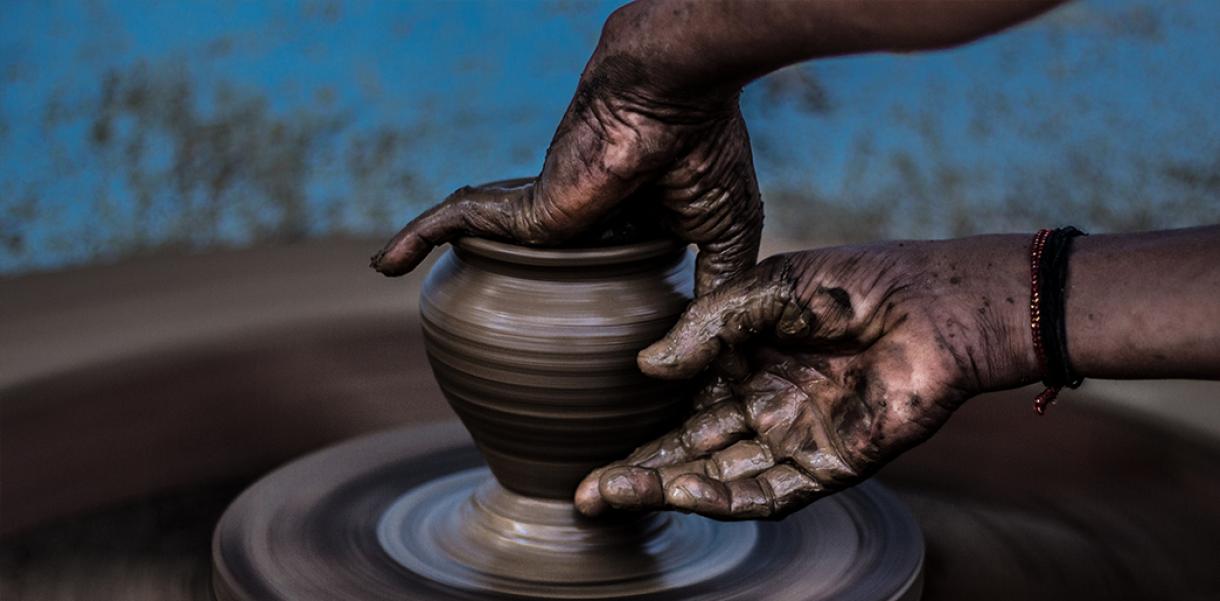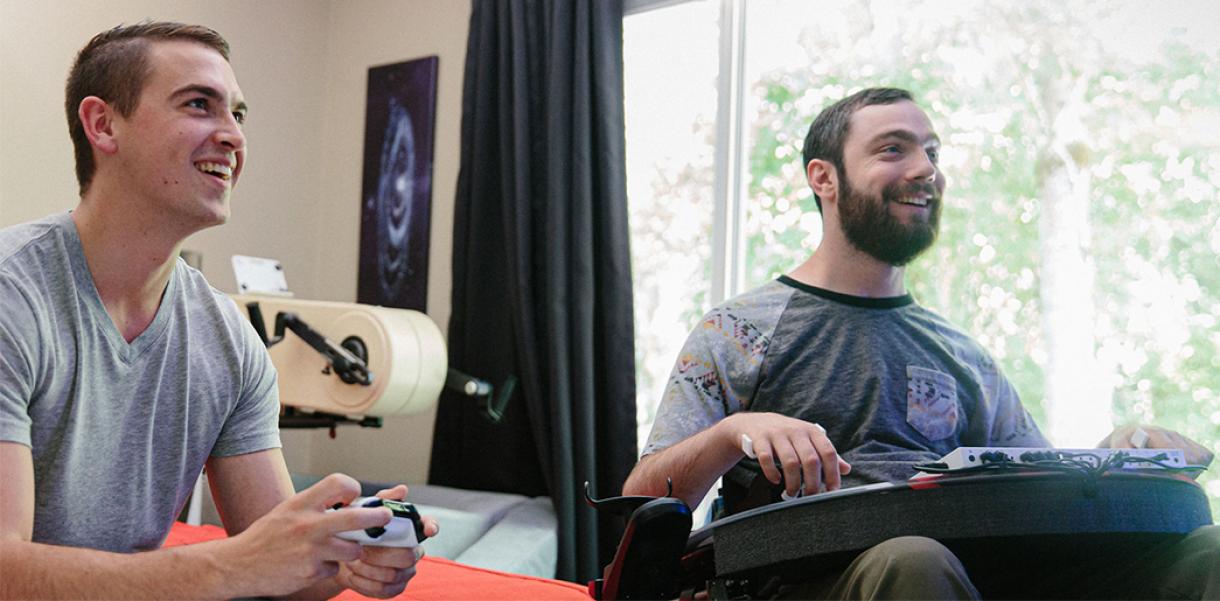
Composting at home may seem like a small contribution to combatting climate change. But every apple core, onion skin or plate of leftovers left out of the trash can add up to an enormous impact. That was the exact thinking of Poonam Bir Kasturi, designer and Founder of Daily Dump, when she came up with an idea to make home composting both easy and desirable.
"I had no great vision that we would be the biggest, and the best company or we would solve all the problems in the world," she recalls. "I just wanted a simple thing; I said: 'it'd be great if everybody in India composts at home because it keeps 60% of the garbage out of the public system'."
The Daily Dump composter, also known as a Kambha pot, is a beautiful stack of terracotta pots for composting organic waste at home. The company produces a range of different models that operate on the simple principle of layering waste with a cocopeat powder that absorbs moisture and odours. The Khamba, or "container for natures' work", as Kasturi puts it, also maximises oxygen flow to aid the decomposition process. And after a few weeks, the organic materials can be used as a rich fertiliser for the garden.
The uniquely Indian design not only addresses an environmental issue but prompts users to take responsibility for their waste, something typically allocated to lower castes in India, as Kasturi explains. It's also about enforcing habits and making composting an intuitive part of peoples' days.
"I like to give an analogy sometimes, like brushing your teeth," she says. "Brushing your teeth was a learned phenomenon during the World War, then it became an industry, and now it's a fundamental practice we do daily. "Ideally, this is what we want for composting in India."
"The design intention was also to make a product to help reconnect people with the Earth."
To date, more than 70,000 families in India are using the Daily Dump systems, resulting in up to 65,000 kilos of organic waste recycled daily. Daily Dump's work has also led to a better understanding and adoption of circular practices, says Kasturi.
"The more we urbanise, the less connected we are with nature," she explains. "If we don't care for it, we're not going to look after it. "The design intention was also to make a product to help reconnect people with the Earth – if we don't do that too, then we haven't done the full job."
To scale this impact further, Daily Dump created its models under the Creative Commons licence. They placed the plans in the public domain to enable others to copy and adapt the design for their own needs. Today, there are at least 30 documented adaptations in India so far. And has even inspired a global movement with composters popping up in Colombia, Thailand, Pakistan, Germany, Bogota, Peru, Chile and Dubai.
"The idea was to enable lots of people, so it doesn't need to be only us," says Kasturi. "We created the product, yes, but nature has created composting. "So we thought: how do we get everybody to get excited about it? And I think we just enabled this approach to spread."
For Kasturi, one of the most rewarding parts of the work is seeing young generations recognise the importance of circularity. She recalls a particular story shared by one of her customers who was travelling with his small children on a public train.
"We created the product, yes, but nature has created composting."
"They had some bananas, and when the kids finished eating, they came to him and said: 'we've got a problem: we've got a banana peel, and we haven't brought a Khamba on the train'. He was thrilled to see that what they'd been teaching them at home had stuck with them, and they knew the right practice. Getting them young makes a big difference!"
So, what's next for Daily Dump? For Kasturi, it's less about expanding the business but more about growing the movement further. "Grand visions are all okay, but I think doing something gently and with the awareness that you must respect the resources that you have as a collective society living on Earth is more important," she says.
"I think we need to get far more stories told in this way, so young people also feel that this is an alternative way. "Our job is to spread the idea of composting, and maybe now everybody else should take it forward and feel the sense of ownership too."
-
The Impact Story series features past Index Award alumni journeys and is proudly sponsored by Laerdal Global Health, winners of Index Award 2013 for The Natalie Collection.




